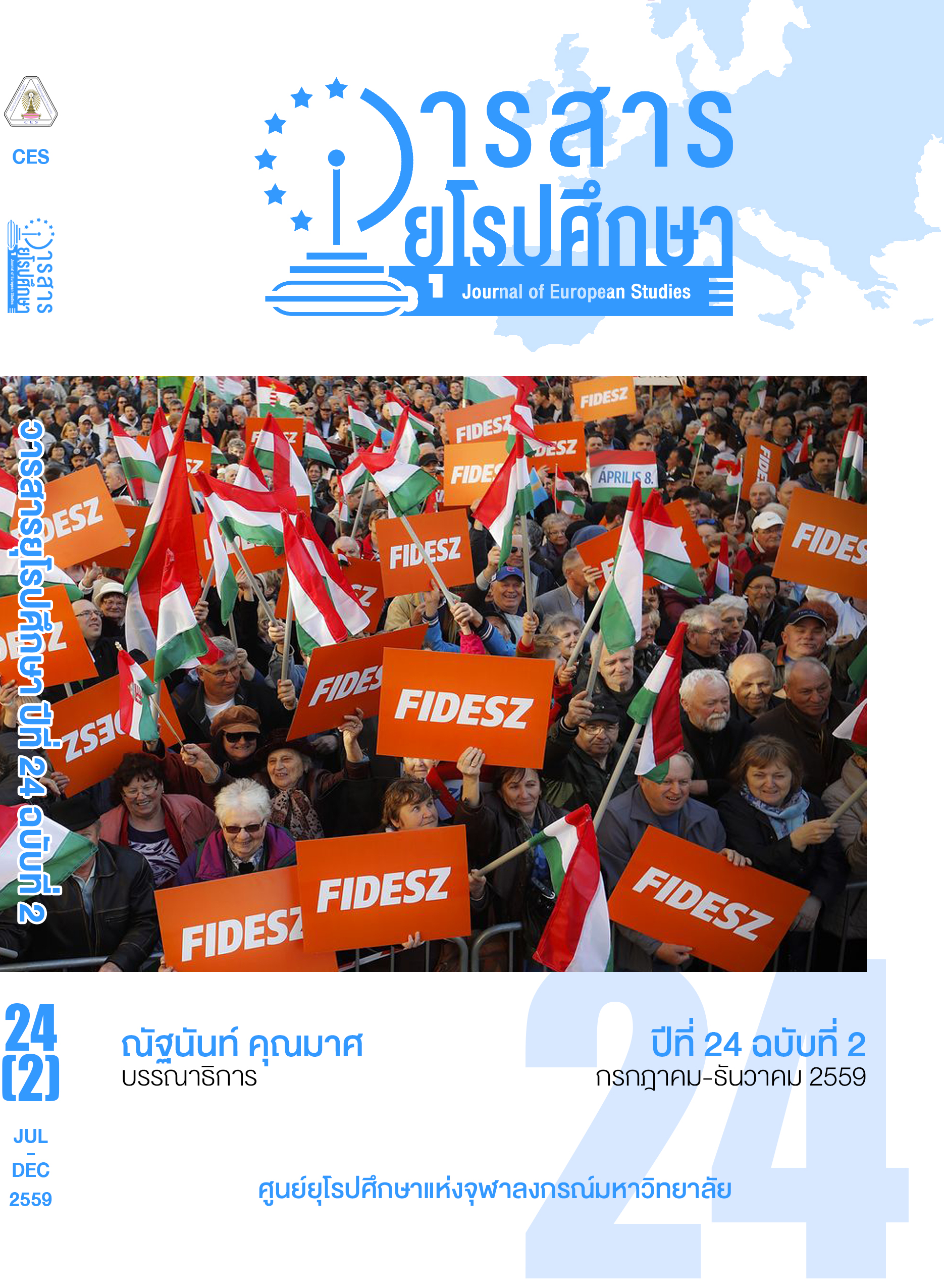Catalexit: วิกฤตการณ์รัฐธรรมนูญสเปนและท่าทีของสหภาพยุโรปต่อกาตาลุญญา
บทคัดย่อ
This article aims to provide an analysis of Spanish Constitutional Crises after Catalonia’s referendum in 2017 by examining background of Catalonia independence movement and Spain’s political mechanisms. Likewise, this article also illustrates the reactions of international community, especially the European Union (EU), towards Catalonia after the referendum. There have been series of conflict between Spain and Catalonia since 1714. Meanwhile, the politics of Spain was also one of the most important factors of the rise of Catalan nationalism, especially when Spain and Catalonia were under General Franco’s dictatorship on which Catalan symbols, cultures and language were limited and replaced by Spanish identities. The Catalan nationalism has returned to its peak again after Spain faced Eurozone crisis, together with Spanish government’s poor fiscal policy and corruption. All of these factors have accelerated the support of “Catalanism” and “Independentism” which has resulted in Spain’s worst constitutional crises since the era of democracy. After the October, 1 Independence referendum was ended by the victory of the independentism over the violence from Spanish police, Spain has applied the article 155 to take the direct control over Catalonia and the European Union, the most crucial international actor related to this issue, has constantly expressed its support towards Spanish government as Catalonia Independence could be an epidemic towards EU members and the stability of the EU might be shaken again if Catalonia can succeed its “Exit” from Spain, and automatically from the EU, after the Brexit.



